Subscribe to the series on any of these platforms to listen to the whole series.
ABOUT
Amnesty International has launched a brand new podcast series ‘Witness from Amnesty International’. The series introduces listeners to the organization’s Research and Crisis Response teams – whose investigations take them to some of the most dangerous and volatile places on earth.
Their work is complex, high-stakes, full of twists and turns – and often results in the exposure of human rights abuses that shock the world. What does it take to uncover the truth, when there are powerful people who would prefer it to stay buried?
Episodes will be available on your favourite podcast platform, starting on 8 September 2020. Check back here for more information.
IT WAS VERY CLEAR THE CLOCK WAS TICKING.
Anna Shea
MEET THE TEAM
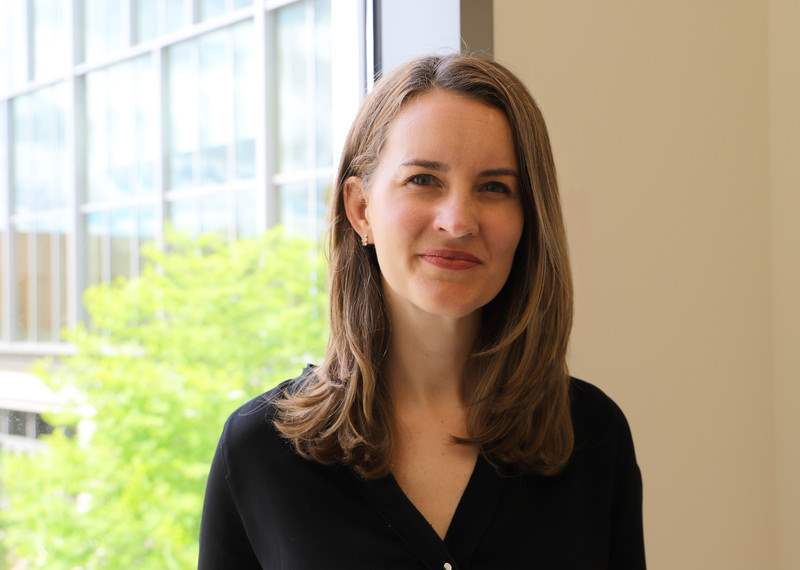
Nicolette Waldman
Nicolette is a researcher with the Crisis Response Programme. Her job involves documenting violations of international human rights law and international humanitarian law in fact-finding missions in conflict and crisis zones. With this documentation, Nicolette and her colleagues produce reports, briefing papers, op-eds and videos to put pressure on those in power to stop abuses.
Previously, she’s been a researcher on Syria and Iraq for Amnesty International, a researcher with the Center for Civilians in Conflict, a legal fellow with the Afghan Independent Human Rights Commission, a programme manager for Save the Children in the West Bank and Gaza, a Fulbright scholar in Jordan, and a senior associate in the legal and policy division at Human Rights Watch.
“I have always been fascinated by war, and what it tells us about humanity: it is both utterly mundane and unimaginably brutal. There is so much we – and especially policymakers and others in power – do not understand about armed conflict. In my experience, this understanding simply cannot be attained without being on the ground in a conflict zone and talking to the people who have survived that conflict. I feel humbled to bear witness to these survivors’ stories and then to share those stories with the world. Growing up in rural, northern Minnesota, it is a job I did not even know existed, and I cannot think of any job in the world I’d rather have.”
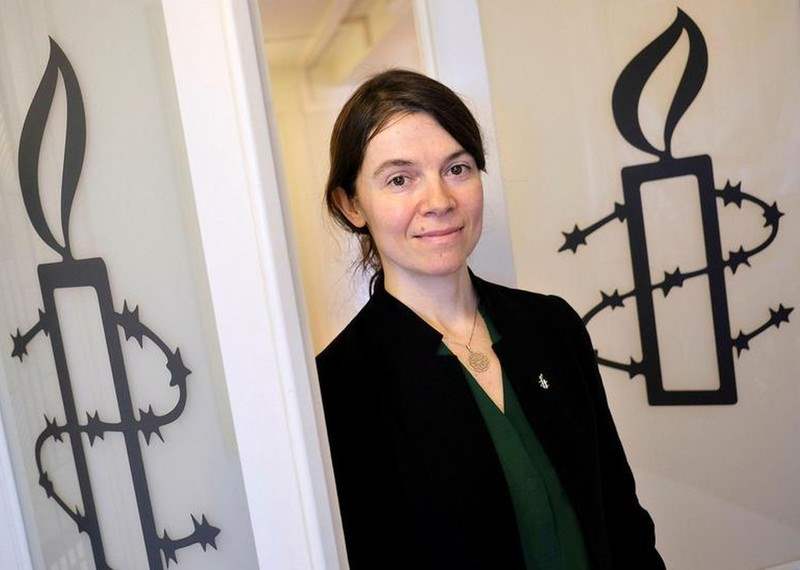
Anna Shea
Anna is a Researcher and Legal Adviser with the Refugee and Migrant Rights Team at Amnesty’s global office in London. Around the world, people in search of safety and a better life are facing closed borders and unfair or abusive policies. Anna’s role is to try to uncover and stop the human rights violations that states commit against people on the move. To do so, she travels to high-risk locations, meets with refugees and migrants, writes in-depth research reports, engages in strategic litigation, and lobbies governments as well as UN institutions. Prior to her current role, she worked in the Legal Programme at Amnesty Canada, at a grassroots legal clinic in Montreal and for several university research institutes. She has worked on human rights issues in many countries across five continents.
“Working for Amnesty International on the issues that I’m most passionate about is a tremendous privilege. What continuously inspires me are the people I’ve met through the course of my research: the women, men and children who have left their homes in order to seek safety for themselves and their families. It takes extraordinary courage and hope to overcome the physical, social, economic and linguistic barriers associated with leaving one’s country, particularly if you don’t have the “correct” passport – or any passport at all. Together with my colleagues in the Refugee and Migrant Rights Team, I try to expose and seek justice for past abuses and prevent future ones from occurring.”

Anya Neistat
Dr Neistat has been involved in human rights work for more than two decades.
As the former Senior Director for Research at Amnesty International, she oversaw Amnesty International’s research worldwide. Prior to this, Anya worked as associate director for Program and Emergencies at Human Rights Watch where she led fact-finding missions in conflict areas and was responsible for developing investigative methodology and training for Human Rights Watch researchers and directors. Anya has worked for “Echo of Moscow,” Russia’s leading radio station, the Open Society Institute, and as a constitutional law researcher at the Radcliffe Institute for Advanced Studies, holding an LL.M. degree from Harvard Law School, a J.D. and Ph.D. in law, and an M.S. in history and philology. She is now Legal Director of The Docket, at the Clooney Foundation for Justice, leading a program of work focused on investigating and bringing to justice individual and corporate perpetrators of international crimes.
“Throughout my career, my work has been to collect testimony, to bring the human voice to a situation. If you want to bring a human voice to life in the story – to show the human impact – you have to be able put yourself in their shoes of those whose testimony you are taking as best you can. I’ve conducted over 60 investigations in conflict areas around the world and it’s not easy but you do get better at it. I think you need to be cut in a particular way to do this work. You need to be able to keep your calm and keep your distance. But once you stop being emotionally affected by what you see, that is the time to rethink your role.”
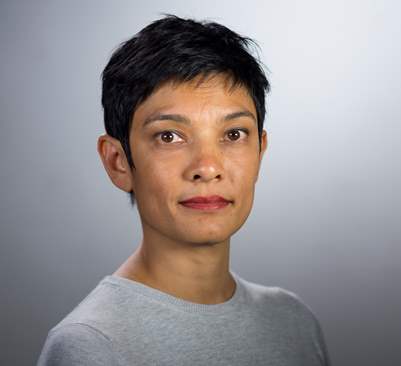
Tirana Hassan
Tirana was the Director of the Crisis Response Programme at Amnesty International. She managed a team of human rights investigators who were deployed to conflicts and crises around the globe, where they document human rights abuses and violations of international humanitarian law. The members of the Crisis Response Programme also lead open source investigations and bring a cutting-edge, multi-disciplinary approach to human rights investigations.
Previously, she has worked as a social worker with young people impacted by gang violence and homelessness. She spent many years working in protection programmes focusing on women and children in humanitarian crises in Africa and Asia. For the past decade she has been documenting and investigating human rights abuses across the world.
“When we see wrongs in this world, the majority of us want to do something about it. There is an uneasy feeling that all of us have experienced when we see wrong doing unfold and we do not act. Each of us does what we can. I am very privileged to work in organisations where we can confront some of the most egregious abuses and mobilise global institutions, policy makers and ordinary people around the world to take meaningful action. We meet some of the most resilient people on the planet who have survived and witnessed unimaginable things. They take time, no matter what the situation, to share what happened with us, in the hope we will help in the fight for justice and accountability or simply help stop the abuses. This is more than just documentation. I have a responsibility to all of those people to do everything in my power to ensure that action is taken.”
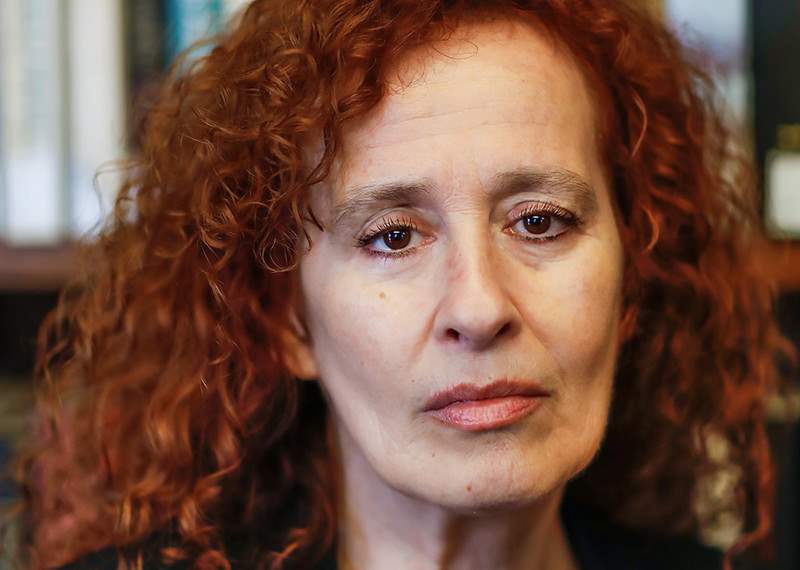
Donatella Rovera
Donatella has been investigating war crimes and other human rights’ abuses in conflicts and crisis around the world, notably across the Middle East and Africa, for Amnesty International for over 20 years. Recent field missions include Syria, Libya, Iraq, Yemen, Nigeria, South Sudan, Central African Republic, Somalia, Ivory Coast, and Sudan. Previously, she worked in Israel/Palestine, Lebanon, Algeria and other parts of the Middle East & North Africa. Rovera studied at the School of Oriental and African Studies (SOAS, London University), specialising in Middle Eastern politics and economics. Subsequent training includes international human rights and humanitarian law, refugee law, and international criminal investigations. She also speaks English, French, Arabic, Spanish, Italian, and Hebrew.
“I don’t chase scoops, I look for tiny scraps, and am obsessed with verification. What makes me get up in the morning? I know my work can’t change the world but it can contribute to making it a bit less of a dark place. My mantras: Even your most precise weapon is only as precise as your intelligence. If there is money for the war there must be money for the consequences of the war.”
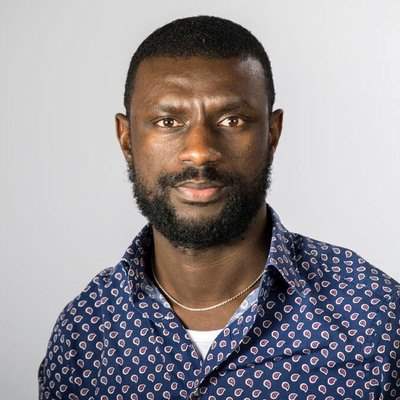
Makmid Kamara
Makmid is a human rights leader, researcher, campaigner and development communications practitioner, with almost twenty (20) years’ experience working with national and international development and human rights organisations in Africa and the United Kingdom. As the former Deputy Director of Global Issues & Head of ESCR Team at Amnesty International, he led Amnesty International’s (AI) research, policy, and strategy on Economic, Social and Cultural Rights (ESCR) issues across the world. He was also interim Country Director for Amnesty International Nigeria and West Africa Researcher. His experience is mainly in Anglophone West Africa, some parts of Europe and the United Kingdom, and selected countries in Southeast Asia. He lives and works in Accra, Ghana.
He is currently the Director of the Africa Transitional Justice Legacy Fund (ATJLF), a grant-making initiative to support civil society and local authorities efforts to advance transitional justice in West Africa. He has also worked with international organisations such as Oxfam GB and Concern Worldwide.
He holds an MSc with distinction in development communications from the London School of Economics and Political Science (LSE).
“I started my journey as an advocate for human rights and social justice at a very young age in Sierra Leone. The experience of growing up in a politically unstable country at the time but also engaging in activism in my home country proved to be an asset to my work at Amnesty International later on. But it never fully prepared me for the scale of abuse and violations that I documented while working as a researcher and campaigner at the world’s biggest and most respected human rights organisation. So as someone who has experienced war, political instability and a range of social injustices, my work as an Amnesty researcher provided an opportunity for me to speak truth to power. To hold perpetrators of crimes accountable and to demand for positive change. It also gave me the chance to stand in solidarity with countless other victims and survivors of human rights violations and abuse. It is a journey of my life that will continue.”

Audrey Gaughran
Audrey Gaughran is an expert on corporate accountability. She began her career as a journalist in her native Ireland, later using her journalistic skills to carry out investigations into human rights issues for the UN and non-governmental organizations.
Audrey worked with Amnesty International for 14 years. In 2007 she was appointed to head up the organization’s work on business and human rights, and led major campaigns seeking justice for victims of corporate abuse. She then led the Global Issues and Research programmes at the International Secretariat, covering issues from corporate accountability and refugee rights to technology and the arms trade.
Since leaving Amnesty in 2017, Audrey has worked with the Natural Resource Governance Institute (NRGI) as Senior Director for Regions, overseeing the organisation’s work to advance accountability and anti-corruption efforts in resource-rich countries. She is currently leading work to examine the political-economy structures that keep some countries trapped in dependency on extractive industries.
“Multinational companies can wield enormous and often opaque influence with governments, a fact that frequently shields them from accountability. When their operations undermine the rights of communities or low-paid workers, the power imbalance can be huge. What strikes you most doing this work is how few cases of serious abuse ever come to light, let alone get properly investigated or involve victims getting redress. The injustice is so blatant…and it makes you want to fight. Companies usually advocate voluntary measures, but strong laws and getting cases into courts are key. It can take years sometimes to pursue legal change or litigation, but it is worth it.”

Danna Ingleton
Danna is the co-Director of Amnesty Tech (acting). Her job involves managing the Disrupting Surveillance team – an international team of technologists, researchers and advocates exposing unlawful targeted surveillance of human rights defenders, providing support and digital security training to civil society and seeking justice for those who have been impacted by surveillance. Previously, Danna has a long history of working for Amnesty International, has worked with international organizations such as the Red Cross and the Organization for Security and Cooperation in Europe, as well as managed the engine room’s Responsible Data Program while on sabbatical from Amnesty.
“In these troubling times of growing authoritarianism, the global pandemic and the rise of crackdowns against dissent we need now, more than ever, to keep watch over abuses of power and abuses of technologies in the hands of the powerful. The international surveillance industry has often been described as the ‘Wild West’ and indeed players in the industry have enjoyed years of profitable impunity for the human rights abuses and violations they have committed or facilitated. Being an activist these days means being vulnerable to not just physical threats but also digital ones. It has to stop and I am passionate about being a part of this important fight every day.”
Raed Labassi
Raed is a technologist with the Disrupting Surveillance team in Amnesty Tech programme. He is based in Amnesty’s Tunis regional office while working with the Security Lab, which leads technical investigations into cyber attacks against civil society. Raed’s job involves investigating and exposing unlawful use of targeted surveillance technology on human rights defenders and providing support to victims of digital attacks based on these technologies.
“I have always been very interested in the relationship between technology and power dynamics in our societies. Surveillance has always had a huge impact on the exercising of fundamental rights like freedom of expression and association. In the recent years and since the adoption of smartphones, this threat has rapidly become a game changer.
Being able to conduct research on surveillance technologies with the Security Lab opened my eyes to major challenges in the defense of human rights in the digital age and bolstered my conviction that there cannot be an effective defense of human rights without a clear understanding of the technological shift that the world is undergoing.”

